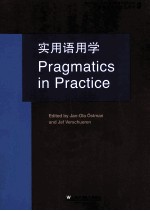图书介绍
实用语用学 英文PDF|Epub|txt|kindle电子书版本网盘下载

- 欧斯特曼,(比)维索尔伦主编 著
- 出版社: 上海:上海外语教育出版社
- ISBN:9787544637732
- 出版时间:2014
- 标注页数:326页
- 文件大小:62MB
- 文件页数:350页
- 主题词:语用学-英文
PDF下载
下载说明
实用语用学 英文PDF格式电子书版下载
下载的文件为RAR压缩包。需要使用解压软件进行解压得到PDF格式图书。建议使用BT下载工具Free Download Manager进行下载,简称FDM(免费,没有广告,支持多平台)。本站资源全部打包为BT种子。所以需要使用专业的BT下载软件进行下载。如BitComet qBittorrent uTorrent等BT下载工具。迅雷目前由于本站不是热门资源。不推荐使用!后期资源热门了。安装了迅雷也可以迅雷进行下载!
(文件页数 要大于 标注页数,上中下等多册电子书除外)
注意:本站所有压缩包均有解压码: 点击下载压缩包解压工具
图书目录
Introduction:Pragmatics and praxis&Jan-Ola ?stman1
1.Praxis1
2.Practical linguistics2
3.'Pragmatics in practice'3
3.1 Everyday language use in practice4
3.2 Language and ethics7
3.3 Pragmatic adaptability in practice11
3.4 Linguistics'applied'16
4.Towards responsibility in practice19
Applied Linguistics&Britt-Louise Gunnarsson23
1.Introduction23
2.The educational setting24
2.1 Child language and early literacy25
2.2 Classroom interaction26
2.3 Second and foreign language learning27
2.4 Teaching methodology and language testing27
2.5 Schooling and society28
3.The economic-technical setting28
3.1 Improving written documents29
3.2 Studies of discourse in organizations29
4.Legal and bureaucratic settings31
4.1 Comprehensibility of legal and bureaucratic language31
4.2 Asymmetries in court and police encounters32
4.3 Forensic linguistics33
5.The medical-social setting33
6.The workplace34
6.1 Workplace interaction35
6.2 Conflicts and negotiations35
6.3 Discourse and technology36
7.Science and the academic setting36
7.1 The sociological-rhetorical study of scientific discourse36
7.2 The study of academic genres and writing37
7.3 Spoken discourse within academia38
8.Conclusion38
Authenticity&Martin Gill46
1.Introduction46
2.Historical background46
3.Understanding the concept49
3.1 Properties of authenticity49
3.2 Establishing authenticity53
3.3 Experiencing authenticity54
4.Authenticity and language55
4.1 The Romantic legacy55
4.2 Authenticating language59
5.Conclusions61
Clinical pragmatics&Michael R.Perkins66
1.The scope of clinical pragmatics66
2.Theoretical issues67
2.1 Is pragmatic impairment a neurological,cognitive or behavioural phenomenon?67
2.2 Modular vs interactionist theories of pragmatic impairment68
3.Describing pragmatic impairment69
3.1 Pragmatic profiles69
3.2 Pragmatic theories and frameworks70
3.3 Neuropragmatics75
3.4 Cognitive pragmatics76
4.The range of pragmatic impairments77
4.1 Primary pragmatic impairment78
4.2 Secondary pragmatic impairment81
5.Clinical pragmatics and pragmatic theory83
Computer-mediated communication&Alexandra Georgakopoulou93
1.Introduction93
2.CMC between speaking and writing94
3.Play and performance100
4.Communities102
5.Self-presentation and identities104
6.Conclusion106
Contrastive analysis&Katarzyna Jaszczolt111
1.The contrastive enterprise111
2.The unit of comparison112
3.The method113
4.The scope114
5.Macro-contrastive analysis115
6.Applications115
Corpus analysis&Jan Aarts118
1.Introduction118
2.Corpus design and typology119
3.Corpus use and annotation122
4.Some websites and journals125
4.1 Corpus distribution centres126
4.2 General information with links to other sites126
4.3 Corpora126
4.4 Software127
4.5 Journals127
Emphasis&Gerda Eva Lauerbach130
1.Definition,problems130
2.Emphasis in rhetoric and stylistics;background norm,markedness,salience132
3.Resources of emphasis135
4.Practices of emphasizing139
5.Resources and practices of emphasis beyond language143
6.Emphasis on the social macro level,further questions144
Error analysis&H?kan Ringbom149
1.Introduction149
2.Identification of errors150
3.Description and classification of errors150
4.Explanation of errors150
5.Limitations151
General semantics&Keith Allan153
Irony&Rachel Giora159
1.Definitions of irony159
2.Irony comprehension163
3.The function(s) of irony167
4.Irony processing in partial implementation169
4.1 Developmental aspects of irony comprehension169
4.2 Hemispheric perspectives of irony comprehension 17o169
5.Future avenues of research171
Language ecology&Tove Skutnabb-Kangas177
1.Introduction177
2.Diversities-definitions,status and threats178
2.1 Linguistic diversity178
2.2 Biological/ecological diversity 18o181
2.3 Threats to diversities181
3.Relationships between linguistic diversity and biodiversity183
3.1 A correlational relationship183
3.2 Towards causality in biocultural/biolinguistic relationships185
3.3 Traditional ecological knowledge encoded in small(indigenous and local)languages and its disappearance186
3.4 Processes in the disappearance of traditional knowledge through hierarchisation of languages and knowledges in education188
4.Work to counteract ecolinguistic threats and promote the survival of diversities192
5.To conclude193
Language policy,language planning and standardization&Robert K.Herbert199
1.Introduction and definitions199
2.Language choice200
3.Standardization204
4.The social context of policy decisions207
5.Conclusion209
Language and the law&Philipp Sebastian Angermeyer211
1.Introduction211
2.Methodologies and data sources211
3.Legal discourse213
3.1 Turn-taking and question-answer sequences214
3.2 Legal-lay discourse218
3.3 Legal discourse in intercultural and multilingual contexts220
4.Speech act theory and Grice's theory of conversational implicature223
5.Conclusion226
Literacy&Jenny Cook-Gumperz231
1.Literacy versus illiteracy-Literacy versus orality:Are these oppositions?231
2.Alternative literacies233
3.Literacy and social memory:The great divide in social organization234
4.Literacy and thought:Issues of the transmission of knowledge237
5.Literacies of schooling or a'schooled literacy'239
6.The language of literacy:Standard language or world languages?240
7.The oral-written language:A continuum or a difference241
8.New directions in literacy studies242
8.1 The new literacy studies242
8.2 Textual domains and new media of communication243
8.3 Scriptal Economies and the politics of written language243
Mass media&Andreas H.Jucker248
1.Introduction and definition248
2.The communicative situation249
2.1 Producers249
2.2 Periodicity and accessibility250
2.3 Recipients252
2.4 Interaction and interactivity254
2.5 Delinearization and modularization256
3.Manipulation and ideology257
4.Conversations for an overhearing audience258
4.1 Pragmatic reliability of data258
4.2 Typology of dialogues for an overhearing audience259
5.Diachronic aspects259
Rhetoric&Manfred Kienpointner264
1.Introduction264
2.The legacy of ancient rhetoric264
2.1 Rhetoric in antiquity264
2.2 Rhetoric from ancient to modern times267
3.Contemporary rhetoric267
3.1 The new rhetoric of Perelman & Olbrechts-Tyteca267
3.2 New rhetoric as scientific rhetoric268
3.3 Normative approaches to rhetoric and argumentation269
4.Fields of rhetoric270
4.1 Techniques of argumentation270
4.2 Techniques of formulation271
4.3 Techniques of performance272
5.The social macro-context of rhetoric273
6.Rhetoric and other fields273
Signed language pragmatics&Terry Janzen,Barbara Shaffer ? Sherman Wilcox278
1.The world's signed languages278
1.1 Language and its expression278
2.Subjectivity279
3.Speech acts280
3.1 Direct speech acts280
3.2 Performatives281
3.3 Indirect speech acts281
4.Modality as an expression of subjectivity282
4.1 Agent-oriented uses in ASL282
4.2 Epistemic uses and the role of syntax283
4.3 Negative modal concepts284
4.4 Historical sources and grammaticization285
5.Information flow286
5.1 Topic and constituent type286
5.2 Topic-comment structure288
5.3 Grammatical topics289
5.4 Tiered topics and topic scope290
5.5 Topic shift290
6.Pragmatics and other signed languages291
Stylistics&Elena Semino ? Jonathan Culpeper295
1.Literary stylistics295
2.General stylistics300
3.Conclusion302
Translation studies&Christina Sch?ffner306
1.Introduction306
2.Linguistic approaches308
3.Textlinguistic approaches310
4.Functionalist approaches312
5.Descriptive Translation Studies and Cultural Studies314
6.Psycholinguistic approaches to translation,machine(assisted)translation,corpus studies,(multi)media translation,sociological approaches316
7.Conclusion319
Index323